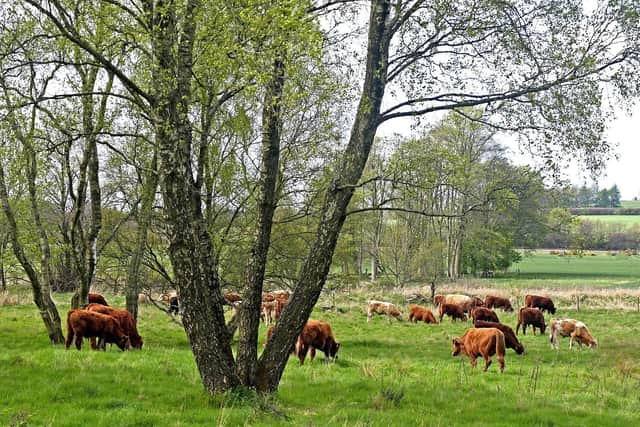Scottish farming: There is more common ground than we might think
Conversations on topics linked to the industry such as biodiversity, meat production and CO2 emissions, just to name a few, often end in an acrimonious debate.
Impassioned vegans condemn the meat industry over animal welfare concerns and factory farming links to greenhouse gases, while livestock owners and omnivores stress the importance of ruminants on the ground for soil health, and that humans eating meat is part of the cycle of life.
Advertisement
Hide AdAdvertisement
Hide AdThe debates go on, and it can be hard to hear what the science is telling us underneath the shouting. But even scientists have said they sometimes feel shoehorned into taking a side.


And, of course, the media often likes to latch onto a juicy debate, which can widen the gap further.
I noticed the BBC, ahead of the Royal Highland Show (RHS), said the agriculture sector had reached “a crossroads” with the (hopefully) soon-to-be-announced payment system for farmers approaching.
The article looked at the lives and views of two very different farmers – one advocating strict environmental conditions for farmers in future policy, while the other spoke about his concern over what that might mean for business in years to come.
However, at the annual show, I found there to be a refreshing sense of common ground between those working in the agriculture sector, despite the immense list of challenges impacting it and varying views discussed on policy.
I need to make it clear this does not include the sector’s relationship with politicians. Over the course of RHS, for example, there were calls from the farming community for the Scottish Government to stop the “hardening” of the Scottish Green agenda to protect the industry and biodiversity, while others in the industry voiced their dismay over Holyrood’s ban on the use of bracken herbicide Asulox.
But over in the Woodland Trust tent at the show, Soil Association Scotland launched a joint policy position involving NFU Scotland and Woodland Trust Scotland about integrating trees on farms and crofts which outlined the benefits, barriers and opportunities of agroforestry systems. This saw support from farmers, campaigners and nature groups alike.
People were gathered drinking cider from apple trees on a farm that has reaped the benefits of using trees in farming systems.
Advertisement
Hide AdAdvertisement
Hide AdRural affairs secretary Mairi Gougeon responded to their joint work by announcing changes to the existing agroforestry options under the Forestry Grant Scheme, which included a 50 per cent increase in payment rates and changes to planting thresholds.
It’s not easy to find a solution that works for everyone when discussing topics such as farming, food production and the environment, which clearly affect every single living thing on this planet. But maybe we should shift the polarised pattern of thinking to searching for more common ground. There might be more than we think.
Comments
Want to join the conversation? Please or to comment on this article.